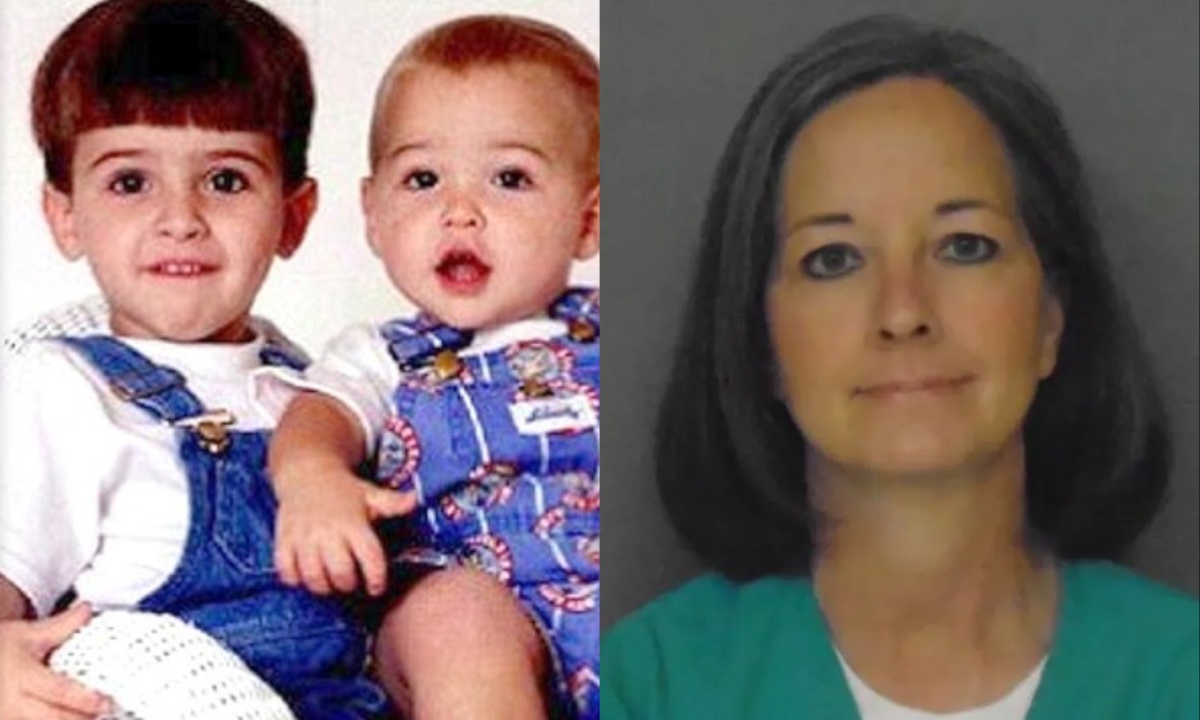This week brought renewed attention to the chilling case of Susan Smith, who infamously murdered her two children in 1994. Reports surfaced indicating that Smith violated prison regulations by discussing her case with a filmmaker, reflecting a disturbing indifference to her past actions.
In a contrasting narrative, Patrick Clancy, whose wife took the lives of their three children due to postpartum depression, shared the haunting details of their last phone conversation, emphasizing that she should not be labeled a “monster.” These divergent accounts underscore the complexities surrounding maternal filicide, a topic explored in Amanda R. Woomer’s new book, *Killer Moms: True Stories*, which examines the psychological and social factors driving mothers to commit such horrific acts.
Among the cases Woomer discusses is that of Rachel David, who, in August 1978, orchestrated a shocking murder-suicide in Salt Lake City. Rachel lured her seven children to jump from their hotel balcony, ultimately following them in a tragic finale. The sole survivor, 15-year-old Rachel, sustained severe injuries but clings to the delusional beliefs instilled by her parents. This harrowing case reveals not only the devastating consequences of mental illness but also the influence of extremist ideologies on familial dynamics.
Rachel’s husband, Charles Bruce Longo, increasingly exhibited grandiose delusions of divinity, leading to the family’s disconnection from the Mormon Church. Following his suicide in 1978, Rachel gathered her children on the balcony, where older siblings complied with her commands, while younger ones resisted, highlighting the tragic imbalance of power within the family. Despite surviving the fall, Rachel David remains psychologically affected by the event, continuing to adhere to her father’s beliefs and perpetuating a cycle of delusion.

Another deeply unsettling case is that of Andrea Yates, who drowned her five children in their family bathtub in 2001. Andrea faced significant mental health challenges, including severe delusions and depression, and had been hospitalized multiple times before the tragedy. Her husband’s insistence on having more children despite her mental health struggles led to a catastrophic outcome.
On the day of the murders, left alone with her children, Andrea succumbed to her delusions, believing she was saving them from evil. Initially convicted of murder, she was later deemed not guilty by reason of insanity and has since received the psychiatric care she desperately needed.
Otty Sanchez’s story further illustrates the devastating impact of untreated mental illness. Struggling with paranoid schizophrenia, Otty’s condition deteriorated after the birth of her son, leading her to believe he was possessed. Tragically, in a severe episode, she murdered her three-and-a-half-week-old baby in a gruesome act. Found not guilty by reason of insanity, she remains in a maximum-security mental institution, with her mental health evaluated annually. This case emphasizes the critical need for accessible mental health resources to prevent such horrific outcomes.
Angela Norman’s case reveals a different yet equally tragic aspect of maternal failure. After giving birth to Makayla, who suffered from severe cerebral palsy, Angela’s negligence led to her daughter’s prolonged suffering and eventual death at age 14. Despite warnings about Makayla’s care, Angela isolated her and subjected her to horrific living conditions.
The discovery of Makayla’s tragic state at her death shocked the community, leading Angela to plead guilty to involuntary manslaughter and receive a prison sentence. Her eventual release in 2020 raises questions about accountability and societal responsibility in cases of child neglect.
Woomer’s exploration of these cases not only recounts the individual tragedies but also examines the underlying psychological and societal issues that contribute to such acts. Each story serves as a stark reminder of the potential for horror within family dynamics, particularly when mental health issues go unrecognized or unaddressed. The book challenges readers to confront uncomfortable truths about motherhood, responsibility, and the structures that fail to protect vulnerable individuals.
While the public often reacts with horror to maternal filicide, understanding the complexities of mental health and societal pressures is crucial for prevention. Woomer’s work emphasizes the urgent need for mental health support for mothers experiencing emotional or psychological distress, advocating for a compassionate approach to addressing these issues. Raising awareness about the factors leading to such tragedies is vital for creating systems that can better protect both mothers and children.
Ultimately, *Killer Moms: True Stories* serves as both a chilling account of individual cases and a broader commentary on the systemic failures that allow such tragedies to occur. By examining the stories of these women, Woomer encourages readers to reflect on the intricate dynamics of human behavior, the fragility of mental health, and the importance of empathy and understanding in the face of unspeakable horror. The book aims to spark meaningful discussions about the need for effective mental health interventions and the societal support necessary to prevent future tragedies.
